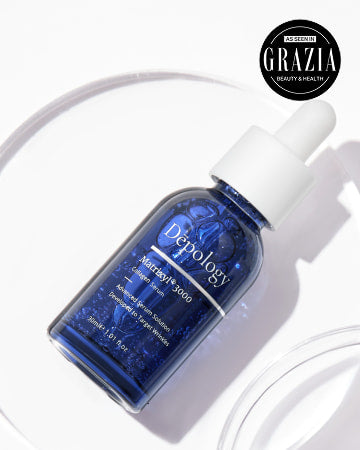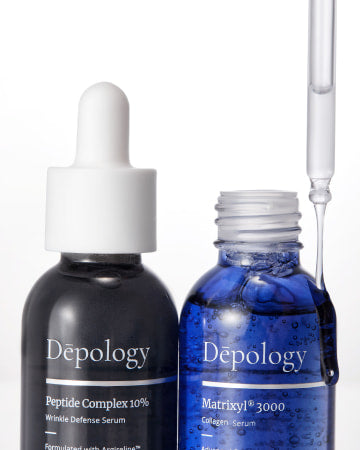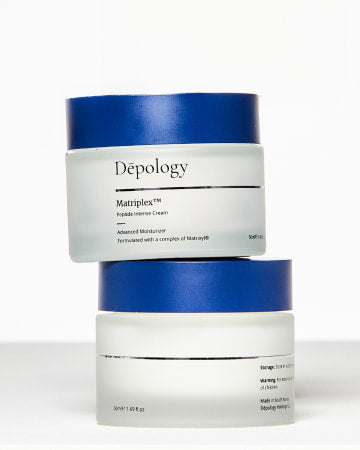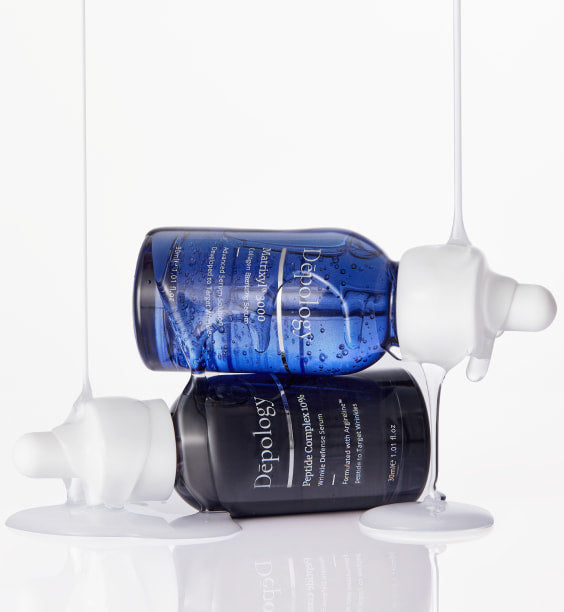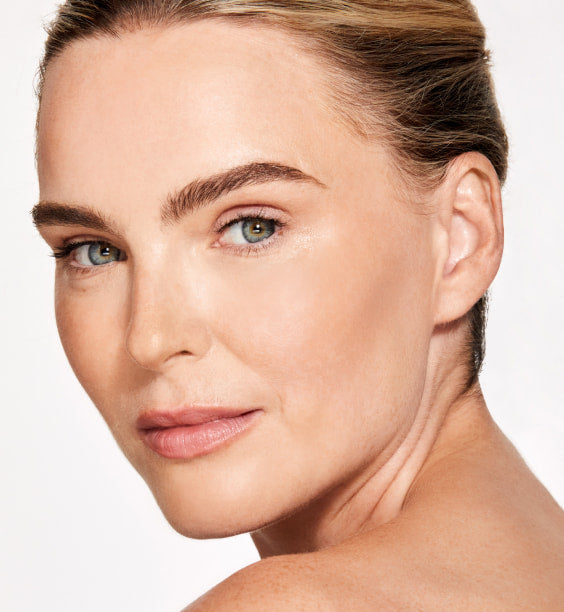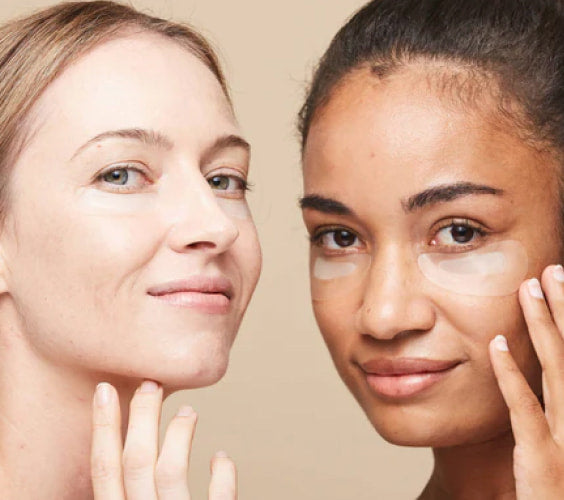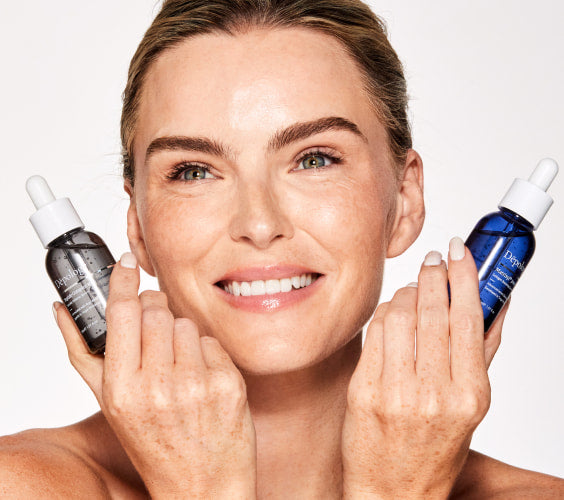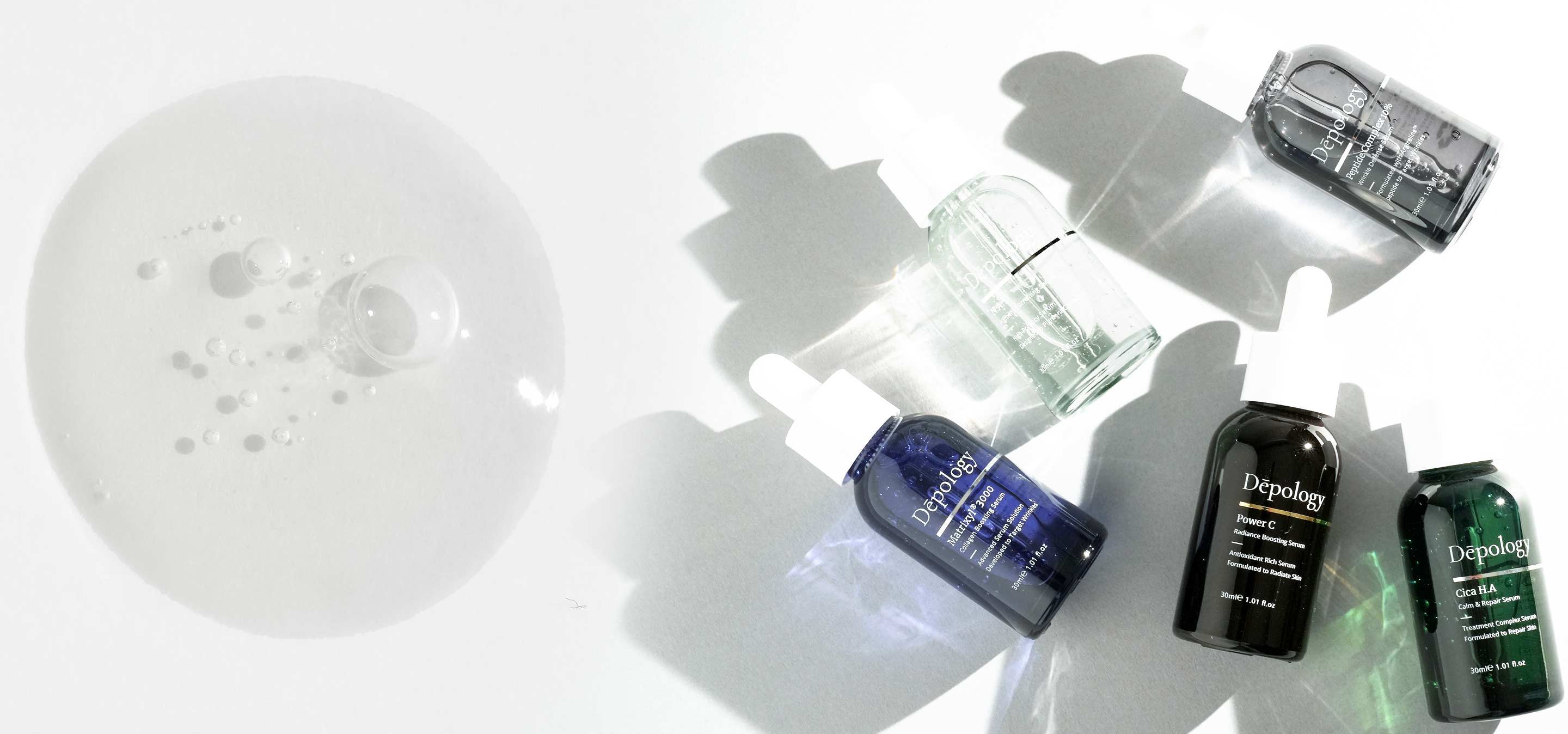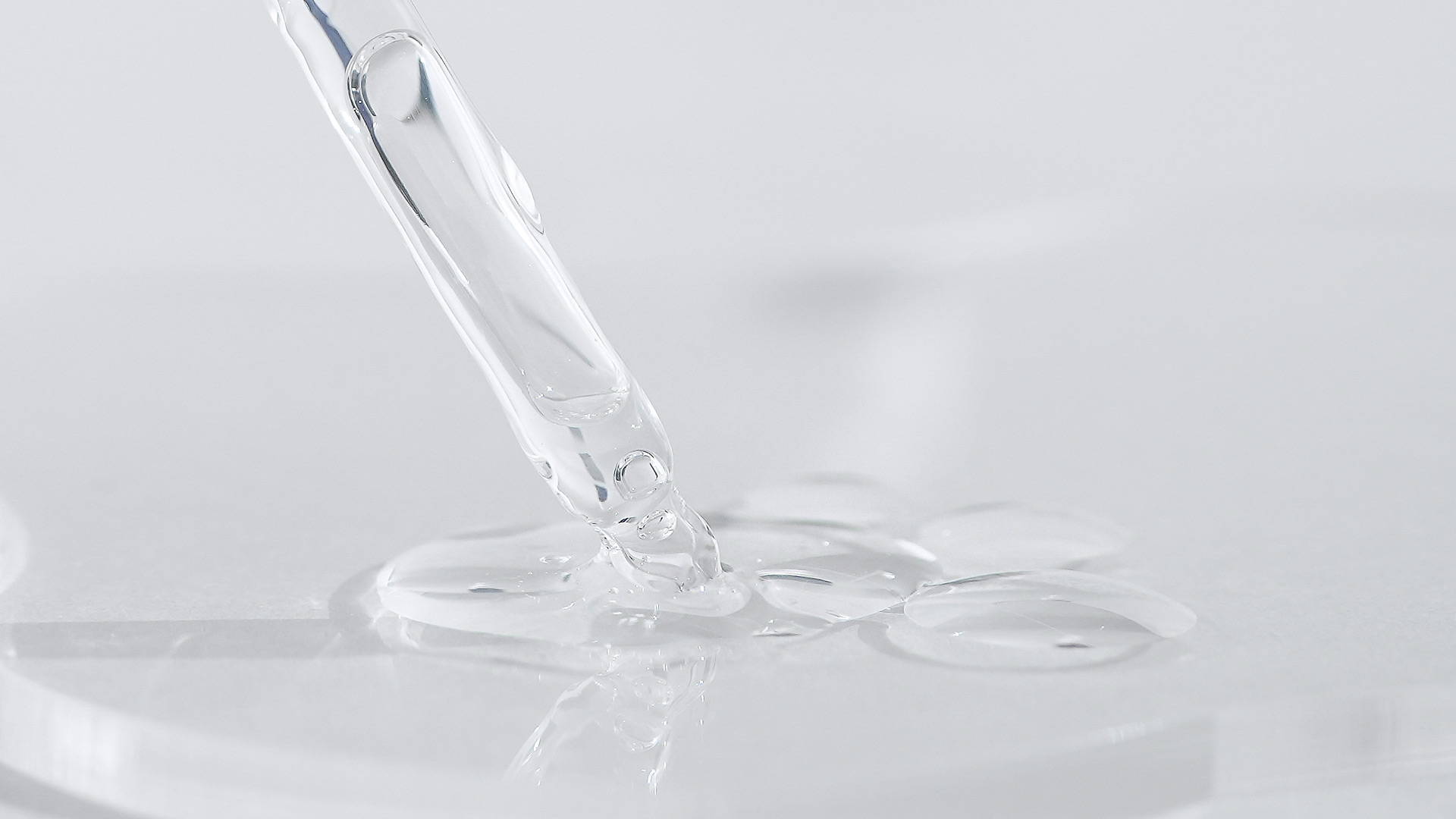
What Are Active Ingredients In Skincare?
Maybe you choose skincare products based on personal recommendations or TikTok trends. Maybe you're a skin care user who reads beneath the lines of each label. Or you're just getting started and it may as well be written in another language. No matter how advanced your skin care regimen is, you're most likely aware of the labeling on skin care products, just like any other product you buy.
Depending on what you are looking to get out of a particular product or formulation, the difference of understanding active ingredients on the label can be crucial in terms of seeing desired results on the skin. By understanding the differentiation between active versus inactive and what each active ingredient is capable of, entering the world of informed skincare users will only increase the overall effectiveness of your routine.
What Are Active Ingredients In Skincare?
Active ingredients in skincare are the specific components of a product that deliver the intended benefits and produce the desired effects on the skin. These ingredients are usually present in higher concentrations compared to other inactive or supporting ingredients. The active ingredients are responsible for addressing various skin concerns and providing the claimed results.
Inactive ingredients, however, can still provide certain skincare benefits. These tend to be the delivery method for other elements of the product’s formula which are present in lower concentrations. They are often water or oil-based.
What Are Common Active Ingredients?
- Retinoids
Retinoids are a class of vitamin A derivatives that are well-known for their beneficial effects on the skin. They are among the most studied and effective ingredients for addressing various skin concerns. They work by binding to specific receptors in the skin cells, influencing cell behavior, and promoting a range of positive effects, including increased collagen production, skin cell turnover, and reduction of hyperpigmentation.
It’s recommended to start with lower concentrations when first starting to use retinoids. They may cause some skin sensitivity and irritation, so gradually build up usage to allow the skin to acclimate to the ingredient.
- Vitamin C
Also known as L-ascorbic acid, vitamin C is a potent antioxidant that offers a range of benefits for the skin. It is one of the most widely used and studied skincare ingredients due to its effectiveness in addressing various skin concerns, such as skin brightening, increased skin barrier protection against UV rays and pollution, and collagen synthesis.
Vitamin C is available in various forms in skincare products. Each form may have slightly different stability and penetration properties, but they all provide antioxidant benefits to the skin.
Power C Antioxidant Radiance Boosting Serum
- Hyaluronic Acid
A naturally occurring molecule found in the skin and other connective tissues of the body, hyaluronic acid is well-known for its exceptional ability to retain moisture, making it a popular ingredient in skincare products designed to provide hydration and plumpness to the skin. As an active ingredient, hyaluronic acid offers many benefits, including increased plumpness, skin barrier support, and soothing skin.
Matrixyl® 3000 Collagen Boosting Serum
Hyaluronic acid is widely used in various skincare products, including moisturizers, serums, masks, and even injectable dermal fillers. It is suitable for almost all skin types, including dry, oily, and sensitive skin. When applied topically, hyaluronic acid is absorbed into the skin, delivering its hydrating benefits directly to the cells. It is commonly used in combination with other active ingredients in skincare formulations to maximize its effects.
- Niacinamide (Vitamin B3)
Niacinamide is a form of vitamin B3, also known as nicotinamide. It has gained popularity in the skincare industry due to its versatility and multiple benefits for the skin. Niacinamide is a water-soluble vitamin, making it suitable for various skin types. This multi-functional ingredient helps to regulate sebum production, minimize the appearance of pores, and reduce the appearance of dark circles, to name a few benefits.
Niacinamide is well-tolerated by most skin types, including sensitive skin, and is less likely to irritate compared to some other active ingredients. It is commonly found in various skincare products, such as moisturizers, serums, toners, and spot treatments. Many people incorporate niacinamide into their skincare routines to address specific concerns like enlarged pores, uneven skin tone, and skin hydration.
Dark Spot Correcting N.A.T. Serum
- Alpha Hydroxy Acids (AHAs)
AHAs are a group of water-soluble acids derived from various sources, such as fruits, milk, and sugar cane. They are well-known for their exfoliating properties and their ability to improve skin texture and appearance. Common AHAs used in skin care include:
Glycolic Acid
Derived from sugar cane, glycolic acid has the smallest molecular size, allowing it to penetrate the skin deeply and provide effective exfoliation.
Lactic Acid
Found in milk, lactic acid is a gentle AHA suitable for sensitive skin types.
Citric Acid
Derived from citrus fruits such as lemons and oranges, it provides both exfoliation and antioxidant benefits.
Malic Acid
Commonly found in apples and pears, malic acid helps promote a smoother skin surface.
Tartaric Acid
Derived from fruits such as grapes, tartaric acid provides exfoliation and antioxidant properties.
As active ingredients, AHAs offer benefits such as exfoliation, stimulation of collagen production, and overall skin texture improvement. AHAs can increase the skin's sensitivity to the sun, so be sure to use sunscreen daily to protect the skin from UV damage.
- Beta Hydroxy Acids (BHAs)
BHAs are a group of exfoliating agents, with the most commonly used BHA being salicylic acid. Unlike AHAs, which are water-soluble, BHAs are oil-soluble, allowing them to penetrate the pores and provide effective exfoliation.
Salicylic acid is derived from willow bark and is highly beneficial for individuals with oily or acne-prone skin. As active ingredients, BHAs offer several benefits, including the reduction of whiteheads and blackheads, acne treatment, and exfoliation.
Because of its ability to penetrate the pores and its anti-acne properties, salicylic acid is often found in products specifically designed for acne-prone skin. As with any active ingredient, it's essential to use products containing BHAs as directed and to start with lower concentrations if you are new to using them. This can help minimize the risk of over-exfoliation or skin irritation.
- Peptides
Peptides are short chains of amino acids, which are the building blocks of proteins. In skincare, peptides deliver specific benefits to the skin by signaling various biological processes.
Different types of peptides can target different skin concerns. Some common types of peptides used in skin care include:
Signal Peptides
These peptides signal the skin to produce more collagen, helping to improve skin firmness and reduce the appearance of wrinkles.
Carrier Peptides
These peptides help deliver essential minerals and other nutrients to the skin, enhancing the overall health and appearance of the skin.
Enzyme-Inhibiting Peptides
These peptides can inhibit certain enzymes that break down collagen and elastin in the skin, helping to maintain the skin's firmness and elasticity.
Neurotransmitter-Inhibiting Peptides
These peptides can relax facial muscles, reducing the appearance of expression lines and wrinkles.
Copper Peptides
Copper peptides are specific types of peptides that contain copper ions. They are known for their wound healing and skin regeneration properties.
As active ingredients, peptides offer the benefits of increasing collagen production, producing anti-aging effects, and improving overall hydration, to name a few. They are commonly found in serums, creams, and moisturizers, and they are often used in combination with other active ingredients to address specific skin concerns.
- Ceramides
Ceramides are naturally occurring lipids (fats) found in the outermost layer of the skin, known as the stratum corneum. They play a crucial role in maintaining the skin's barrier function and hydration, helping to keep the skin healthy and protected. In skincare products, synthetic ceramides or plant-derived ceramides are used to enhance the skin's natural lipid barrier and provide various benefits, such as hydration retention, increased protection against environmental stressors, and calming skin.
As active ingredients, ceramides are commonly found in moisturizers, serums, and other skincare products designed to improve skin hydration and barrier function. They are especially beneficial for individuals with dry, dehydrated, or sensitive skin.
- Vitamin E
Also known as tocopherol, vitamin E is a fat-soluble antioxidant that is naturally found in various foods and plant-based oils. In skincare products, Vitamin E is used for its beneficial effects on the skin, not limited to skin barrier repair, enhanced moisturization, and protection against sun damage.
Peptide Complex Argireline™ Serum
Vitamin E is often used in combination with other active ingredients in skincare products, such as Vitamin C and retinoids, to enhance their overall efficacy and provide a synergistic effect. You can find Vitamin E in various skincare formulations, including creams, serums, oils, and moisturizers.
- Licorice Root Extract
Licorice root extract is derived from (you guessed it) the root of the licorice plant (Glycyrrhiza glabra) and has been used for centuries for its medicinal properties, including its numerous skin benefits, including anti-inflammatory properties, increased brightening, and reduction of redness or irritation.
Licorice root extract is commonly found in serums, creams, moisturizers, and cleansers designed to address hyperpigmentation, redness, and uneven skin tone.
- Arbutin
Arbutin is a natural compound found in certain plants, including bearberry, cranberry, and pear trees. It is commonly used in skincare products for its skin-lightening and brightening properties. It can be found in various skincare products, such as serums, creams, lotions, and spot treatments, formulated to target hyperpigmentation and uneven skin tone.
Sulfur is a naturally occurring element and has been used for centuries for its medicinal and skincare properties. In skincare products, sulfur is mainly used for its anti-inflammatory and antibacterial properties, making it effective in treating various skin conditions. Sulfur is commonly found in various skincare products, including masks, cleansers, spot treatments, and ointments designed to treat acne and soothe inflamed skin.
Due to its potential to cause dryness and irritation, you should use sulfur products as directed and avoid overusing them. If you have sensitive skin or specific skin concerns, try performing a patch test first on a small area of skin before using it on the face.
Can Active Ingredients Be Mixed?
The mixing of active ingredients in skincare should be approached with caution. While combining certain active ingredients can create a more potent and effective formulation, it can also lead to skin irritation, skin sensitivity, or even counteract the benefits of each other. Here are some guidelines to consider when mixing active ingredients:
- Know Your Skin Type and Sensitivity
If you have sensitive skin, it's generally best to avoid mixing multiple active ingredients at once. Even those with more resilient skin should be careful and start with a patch test before applying a cocktail of actives to the entire face.
- Consult a Dermatologist or Skincare Professional
Seeking advice from a dermatologist or skincare professional is essential, especially if you want to combine potent active ingredients or address specific skin concerns. They can provide personalized recommendations based on your skin type and goals.
- Avoid Harsh Combinations
Some active ingredients can be harsh on the skin and irritate when combined. For example, mixing retinoids with alpha hydroxy acids (AHAs) or beta hydroxy acids (BHAs) can lead to excessive dryness and sensitivity.
- Layering Order Matters
When combining multiple active ingredients, the order of application matters. Some ingredients should be applied in the morning, while others are better suited for evening use. Also, consider the texture of the products and how they will layer together.
- Start Slowly and Gradually
If you decide to mix active ingredients, introduce them slowly into your routine, one at a time. This approach allows you to monitor how your skin reacts to each ingredient and identify any potential adverse reactions.
- Sunscreen is a Must
Some active ingredients can increase skin sensitivity to the sun, so wearing sunscreen daily is essential to protect your skin from harmful UV rays.
- Pay Attention to the pH
Certain active ingredients work best at specific pH levels. Mixing ingredients with vastly different pH values might alter their effectiveness.
- Be Cautious with Prescription Products
If you're using prescription-strength active ingredients, such as prescription retinoids or acne medications, it's crucial to follow your dermatologist's advice strictly. Mixing them with other actives without guidance can lead to complications.
How Do You Know If An Ingredient Is Active?
Identifying whether an ingredient is active in skincare requires an understanding of its purpose and potential effects on the skin. Active ingredients are the key components responsible for delivering specific benefits and producing noticeable changes in the skin. Here are some indicators to help you determine if an ingredient is active:
- Claimed Benefits
Active ingredients are typically highlighted in the product's marketing and packaging, specifying the benefits they are intended to provide. Look for claims such as "anti-aging," "acne-fighting," "brightening," "hydrating," or "exfoliating."
- Higher Concentrations
Active ingredients are present in higher concentrations compared to other ingredients in the product. They are often listed near the beginning of the ingredient list.
- Specific Actions
Active ingredients are known for their particular actions on the skin. For example, retinoids are known for their ability to promote collagen production and reduce wrinkles, while vitamin C is known for its antioxidant and brightening properties.
- Clinical Studies and Research
These types of ingredients often have scientific research and clinical studies supporting their efficacy. Reputable skincare brands will often cite or reference studies to back up their claims.
- Regulatory Information
In some countries, skincare products may be regulated, and active ingredients have to meet specific standards to be labeled as such. Check for regulatory approvals or certifications on the product packaging.
- Function in the Formulation
Consider how the ingredient functions within the product. For example, if it's listed as a "cleansing agent," it's likely an active ingredient responsible for cleansing the skin.
Are There Side Effects Of Active Ingredients?
Yes, active ingredients in skincare products can have side effects, especially when misused or in combination with other ingredients. The severity and likelihood of side effects can vary depending on the individual's skin type, sensitivity, and concentration of the active ingredient in the product. Some common side effects of active ingredients in skincare may include:
- Skin Irritation
Redness, itching, burning, or stinging sensations are common signs of skin irritation. Ingredients like retinoids, alpha hydroxy acids (AHAs), and beta hydroxy acids (BHAs) can be particularly irritating if not used correctly.
- Sensitivity to Sunlight
Certain active ingredients, like AHAs and retinoids, can increase the skin's sensitivity to sunlight, making it more prone to sunburn and damage. It's crucial to wear sunscreen daily when using these ingredients.
- Skin Purging
In some cases, active ingredients like retinoids and exfoliating acids can cause a temporary "purging" phase where the skin may experience an increase in breakouts before improving.
- Allergic Reactions
Some individuals may be allergic to certain active ingredients, leading to rashes, hives, or contact dermatitis. If you notice any of these symptoms beginning to form, halt the application of the product immediately and seek medical care.
- Skin Peeling or Excessive Dryness
Overuse of strong exfoliating agents or retinoids can lead to excessive peeling and dryness, potentially damaging the skin's barrier.
- Hyperpigmentation
In rare cases, certain active ingredients may cause post-inflammatory hyperpigmentation (PIH) in some individuals, especially those with darker skin tones.
- Stinging or Burning Sensation
Some active ingredients, particularly when used in high concentrations or on sensitive skin, can cause a stinging or burning sensation upon application.
Who Should or Shouldn’t Use Active Ingredients?
The use of active ingredients in skincare isn’t universal, and whether someone should or shouldn't use them depends on various factors, including skin type, sensitivity, and specific skin concerns.
Who Should Use Active Ingredients:
- Those Concerned about Specific Skin Issues
Active ingredients are beneficial for individuals looking to address particular skin concerns like acne, aging signs, hyperpigmentation, or dullness.
- Non-sensitive Skin Types
People with non-sensitive or resilient skin can generally tolerate active ingredients better than those with sensitive skin.
- Those Looking For Prevention of Aging Signs
Active ingredients like retinoids and antioxidants can help prevent and minimize the appearance of aging signs when used as a proactive measure.
Who Shouldn't Use Active Ingredients:
- Those with Sensitive Skin Types
People with sensitive skin may experience irritation, redness, or allergic reactions when using certain active ingredients. In such cases, milder formulations or avoiding active ingredients altogether might be more appropriate.
- Those With Skin Conditions
Individuals with certain skin conditions, such as eczema, rosacea, or psoriasis, should be cautious when using active ingredients, as they can exacerbate these conditions.
- Women Pregnant or Breastfeeding
Pregnant or breastfeeding individuals should consult a healthcare professional before using products with active ingredients, as some ingredients may not be safe during pregnancy or lactation.
- Those Using Prescription Medications
If using prescription-strength skincare products, such as tretinoin or isotretinoin, or undergoing certain dermatological treatments, using additional active ingredients without guidance may cause adverse reactions.
Conclusion
Ultimately, the decision to use active ingredients should be based on an individual's unique skin needs, preferences, and the guidance of a skincare professional if necessary. If you are uncertain about whether certain active ingredients are suitable for you, consider consulting a skincare expert for personalized advice.


